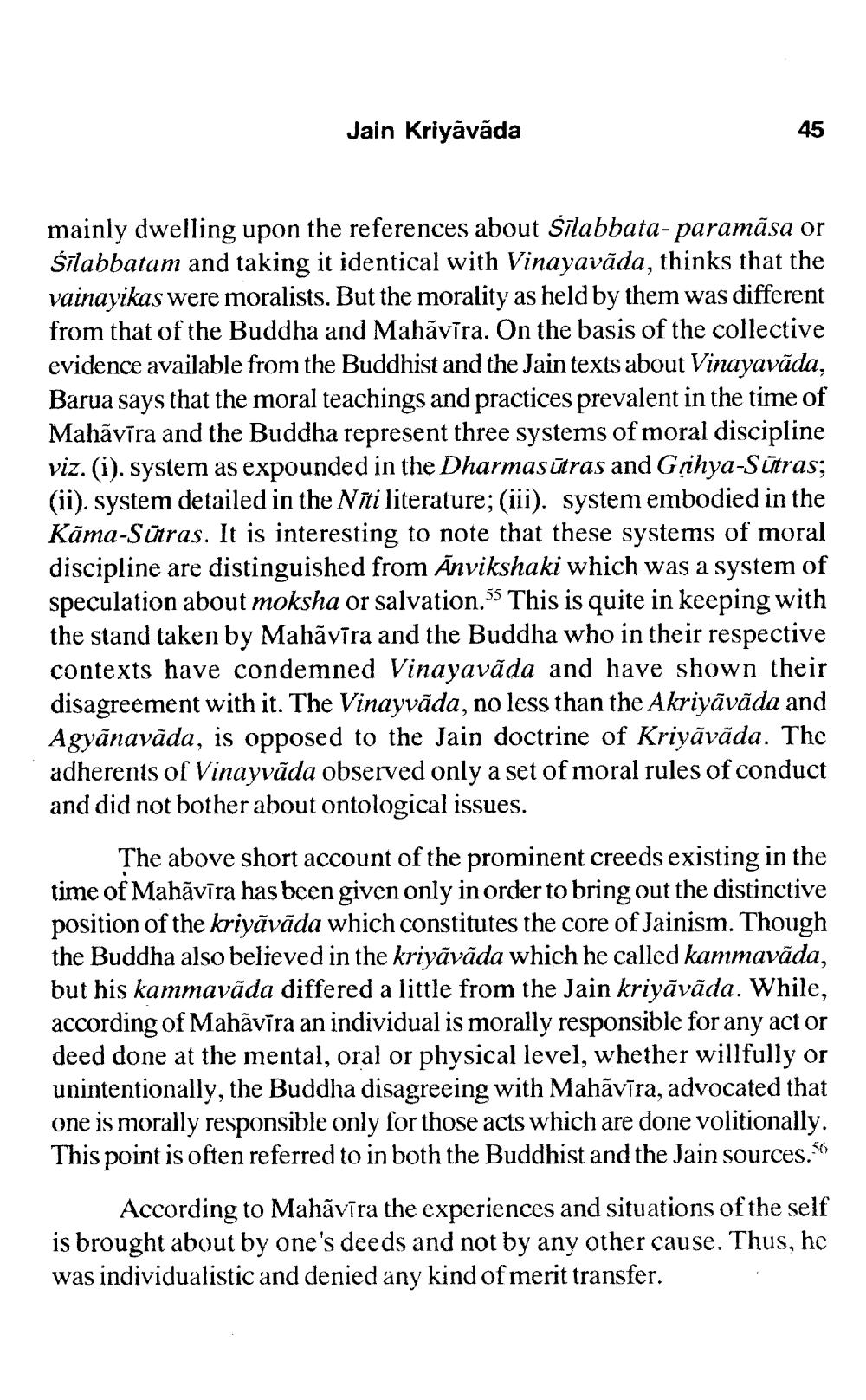________________
Jain Kriyavada
45
mainly dwelling upon the references about Silabbata-paramāsa or Śilabbatam and taking it identical with Vinayavāda, thinks that the vainayikas were moralists. But the morality as held by them was different from that of the Buddha and Mahāvīra. On the basis of the collective evidence available from the Buddhist and the Jain texts about Vinayavāda, Barua says that the moral teachings and practices prevalent in the time of Mahāvīra and the Buddha represent three systems of moral discipline viz. (i). system as expounded in the Dharmasutras and Grihya-Sutras; (ii). system detailed in the Niti literature; (iii). system embodied in the Kāma-Sūtras. It is interesting to note that these systems of moral discipline are distinguished from Anvikshaki which was a system of speculation about moksha or salvation." This is quite in keeping with the stand taken by Mahāvīra and the Buddha who in their respective contexts have condemned Vinayavada and have shown their disagreement with it. The Vinayvāda, no less than the Akriyāvāda and Agyanavāda, is opposed to the Jain doctrine of Kriyāvāda. The adherents of Vinayvāda observed only a set of moral rules of conduct and did not bother about ontological issues.
The above short account of the prominent creeds existing in the time of Mahāvīra has been given only in order to bring out the distinctive position of the kriyāvāda which constitutes the core of Jainism. Though the Buddha also believed in the kriyāvāda which he called kammavāda, but his kammavāda differed a little from the Jain kriyāvāda. While, according of Mahāvīra an individual is morally responsible for any act or deed done at the mental, oral or physical level, whether willfully or unintentionally, the Buddha disagreeing with Mahāvīra, advocated that one is morally responsible only for those acts which are done volitionally. This point is often referred to in both the Buddhist and the Jain sources.56
According to Mahavīra the experiences and situations of the self is brought about by one's deeds and not by any other cause. Thus, he was individualistic and denied any kind of merit transfer.




